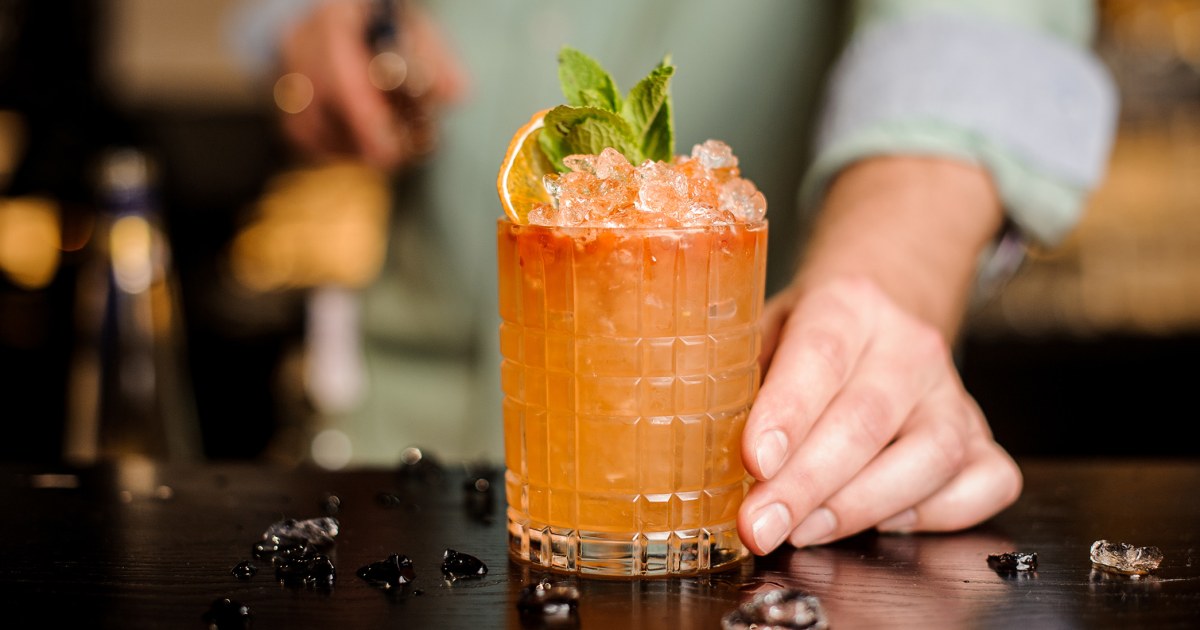BOYDS, Md. — As the holiday season approaches, small distilleries across the United States are facing an unexpected hurdle: a federal government shutdown that's halting approvals for new liquor products and threatening their busiest time of year.
David Harris and Megan Draheim, a husband-and-wife team, spent 11 years turning their dream into reality with the opening of Song Dog Farm Distillery on a rural hillside in Boyds, Maryland, last month. Nestled next to rows of corn they plan to use for whiskey, the distillery was set to capitalize on the holidays with innovative cocktails and liqueurs. But the shutdown has frozen their plans, leaving them unable to expand their product line.
“It’s threatening to our business, and it’s disappointing to our customers,” Harris said. “After 11 years of building, we want to satisfy people and show them the bounty of the agriculture around here and seasonal products.”
The issue stems from the Alcohol and Tobacco Tax and Trade Bureau (TTB), a federal agency responsible for approving labels and formulas for new alcoholic beverages. With the government shuttered, the TTB is not processing applications, even though its website allows submissions. Distillers must obtain a “Certificate of Label Approval” for new drinks, and those with flavoring or coloring materials require additional formula approvals, according to the bureau's guidelines.
Harris explained that under normal circumstances, the wait time is just three to five days. “Normally, it’s a wait time of three or five days. It’s no big deal,” he said. “And right now, there are no approvals for any formula, any new label anywhere in the industry.”
Draheim echoed the frustration, noting the meticulous planning that went into their launch. “We’ve really spent so much time thinking about every detail of this project. And it is really frustrating to get here and have our hands tied,” she said. The couple had overcome previous obstacles, including the pandemic, which shut down bars and restaurants nationwide and prompted their bank to withdraw a loan.
Now, with a limited opening menu, they fear losing customers during the peak holiday period. “People will notice. They’re going to get sick of our very limited opening menu that we’re constrained to until the government reopens,” Harris said.
This predicament is not unique to Song Dog Farm. In Big Fork, Montana, Gabe Spencer, head distiller at Whistling Andy Distillery, said the shutdown is causing significant stress as the holidays account for 30 to 35 percent of their annual revenue. “It’s stressful because … 30-35% of our revenue comes between Thanksgiving through Christmas,” Spencer said. “In the Christmas season, our little village kind of turns into a Christmas town, so we get a lot of foot traffic through the tasting room.”
Whistling Andy is awaiting approvals for special releases tied to its 15th anniversary. Even if the government reopens next week, Spencer doubts they could get labels printed in time. As a result, the distillery has paused hiring additional sales staff to promote products in Montana and beyond. “We need more boots on the ground and having money coming in, having the ability to bring somebody else on to help grow our brand, I don’t think I’ll be able to do that, you know, without having the revenue coming in … as much as we anticipated,” he said.
Further east, in Ohio, Tom Lix, owner of Cleveland Whiskey, is unable to release a new peanut butter chocolate cream liquor intended for winter drinks like hot cocoa and Irish coffee. “It really screws up your planning and hiring of new people,” Lix said. “There’s a huge ripple effect of something as stupid as a government shutdown.”
Lix also pointed to additional pressures from President Donald Trump's tariffs, which have increased prices on bottles sourced from Canada. According to the Distilled Spirits Council of the U.S., exports of American spirits to Canada dropped 85 percent in the second quarter of 2025, amid a Canadian boycott of U.S. goods in response to the tariffs and Trump's suggestions that Canada could become the 51st state.
“You need to get together, get in a room and not leave until you figure this out,” Lix said, addressing lawmakers on Capitol Hill.
The broader craft spirits industry is feeling the strain, as described by Margie A.S. Lehrman, CEO of American Craft Spirits. She likened the combined effects of the shutdown and tariffs to a boxer facing multiple opponents. “They’re in the center of the ring. Before you might have got one blow; now they’re in there with multiple boxers, and they’re in the middle,” Lehrman said.
This comes at a challenging time for the alcohol sector, with sales declining as fewer Americans consume beer, wine, or spirits. A Gallup poll from July found that only 54 percent of Americans drink alcohol, the lowest figure in the poll's 90-year history.
For Harris at Song Dog Farm, the uncertainty exacerbates the issue. “Businesses like ours need some type of certainty, some kind of roadmap for what’s about to happen,” he said. The TTB did not respond to requests for comment, and its website states that while new applications can be filed, they will not be reviewed until the shutdown ends.
The shutdown's impact extends beyond immediate sales losses, potentially rippling through hiring, marketing, and long-term growth in an industry already navigating economic headwinds. Distillers like Spencer have had to scale back expansion plans, while others worry about missing out on the holiday rush that draws in new customers through tasting rooms and seasonal promotions.
As the impasse in Washington continues, these small businesses remain in limbo, hoping for a swift resolution. Industry advocates are calling for stability, emphasizing the need for predictable government operations in a heavily regulated field. Without it, the holiday spirits for many liquor makers may remain decidedly dampened.
